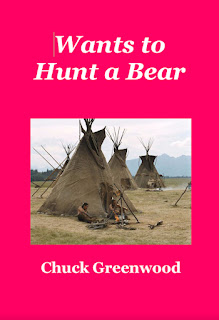One of the old men gives his name to the story. "Wants To Hunt A Bear" ($15 in paperback, independently published), is set on the Llano Estacado, the high desert of northwestern Texas, in the decades following 1864, the troublous times of the so-called "Indian wars."
With extraordinary skill, Greenwood brings the reader deep into the life of a tight-knit band that faces the ravages of Texas Rangers and the U.S. Army. The group is not passive, yet those wisest among them sense futility.
"'The white men are wrong,' Wants To Hunt A Bear says at last. 'They are wrong because they think that the land and the animals are things that you can own—you can tell that from the way they look at the animals, and at their fences. … We do not own the land—we belong on it, and that is different … But there are very many of them, and they build their cabins and their fences where they should not be.'"
Greenwood also brings an empathetic focus on those in the Army charged with working out a brutal form of "Manifest Destiny." When Captain Peter Mills reflects in 1872 "after the cavalry under his command had ambushed the band of Comanches," he is deeply troubled; "never before had he seen fallen enemies deliberately trampled, and the bodies of women and children are not normally found on battlefields."
Mills would become a teacher, a transformation. As Antelope tells the band, "'Sometimes a person needs several names, sometimes a person takes a long time becoming who he is.'" The Comanche language "is so economical that they do not even have separate words for 'growing' and 'becoming.'"
A moment at the end, when those two come together, will pierce the reader's heart.
